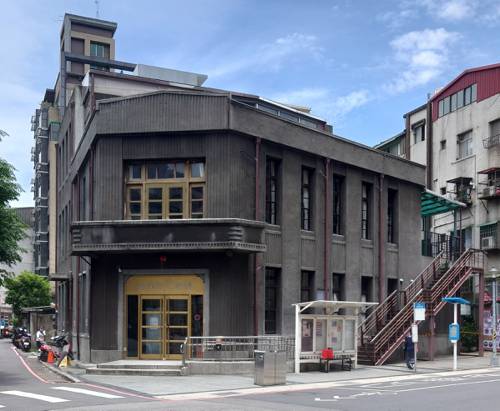
FAQ About The Influence of Avant-Garde Theatre

What is avant-garde theatre?
Avant-garde theatre is a form of theatrical performance that breaks away from conventional storytelling and production methods. It often employs experimental, innovative, and unconventional techniques to explore narratives, themes, and characters. This style uses abstract and non-traditional forms in order to provoke thought, challenge audiences, and offer new perspectives on societal and cultural issues.

How did avant-garde theatre originate?
Avant-garde theatre originated in the late 19th and early 20th centuries, arising as a reaction against established art and performance norms. It was inspired by various avant-garde movements in art and literature of the time, including surrealism, expressionism, and futurism. These movements emphasized breaking boundaries, challenging societal values, and using new artistic techniques.

What are some characteristics of avant-garde theatre?
Some characteristics of avant-garde theatre include non-linear narratives, abstract staging, and the use of multimedia elements like projections and interactive technology. Performances may include improvisation, audience participation, and breaking the fourth wall. Avant-garde theatre often challenges traditional roles of actors and aims to engage audiences in unique and thought-provoking ways.

Who are notable figures in avant-garde theatre?
Notable figures in avant-garde theatre include Antonin Artaud, Bertolt Brecht, and Samuel Beckett. Artaud developed the Theatre of Cruelty, advocating for a visceral, powerful theatrical experience. Brecht, known for epic theatre, aimed to provoke critical thinking with techniques like the Verfremdungseffekt (alienation effect). Beckett, with works like Waiting for Godot, embraced minimalist and absurdist approaches.

How does avant-garde theatre impact modern drama?
Avant-garde theatre has significantly impacted modern drama by introducing innovative storytelling techniques and challenging traditional views of theatre. It has expanded the range of narratives and styles available to playwrights and directors, encouraging boldness and creativity. Many contemporary theatrical works incorporate avant-garde elements, from fragmented storytelling to experimental stage design.

What is the Theatre of Cruelty?
The Theatre of Cruelty is a concept developed by Antonin Artaud, advocating for a deeply immersive and intense theatrical experience meant to shock and awaken audiences. It focuses on sensory overload, using sound, light, and movement to manifest the subconscious and explore the human psyche. The aim is to provoke feelings and thoughts beyond superficial reactions.

How did technology influence avant-garde theatre?
Technology has played a crucial role in the evolution of avant-garde theatre, enabling creators to experiment with new forms and mediums. This includes the use of video projections, digital effects, soundscapes, and interactive elements that create immersive or altered realities. Technology also allows for hybrid performances that challenge the boundaries of traditional theatre through innovative storytelling techniques.

What role does audience participation play in avant-garde theatre?
Audience participation is a key element in many avant-garde theatre productions, designed to break the traditional barrier between actors and spectators. This can be achieved through direct interaction, improvisation, or even transforming the audience into part of the performance. The goal is to engage patrons beyond passive observation, encouraging them to become active collaborators in the narrative process.

What is the significance of non-linear narratives in avant-garde theatre?
Non-linear narratives in avant-garde theatre disrupt conventional narrative structures, allowing for more abstract and thought-provoking storytelling. They enable the exploration of themes such as time, memory, and existentialism by presenting fragmented or layered stories. This approach invites audiences to piece together the narrative themselves, often leading to multiple interpretations and a deeper engagement with the material.

How did surrealism influence avant-garde theatre?
Surrealism influenced avant-garde theatre by introducing elements of the unconscious, dreams, and unexpected juxtapositions into performances. This artistic movement encouraged the portrayal of illogical scenes and bizarre themes that defied reason, aiming to explore deeper truths beyond the surface. Surrealism's influence can be seen in the unconventional narratives and visual styles of many avant-garde productions.

What is the significance of the fourth wall in avant-garde theatre?
In avant-garde theatre, the concept of the "fourth wall"—the imaginary boundary between actors and audience— is often breached intentionally. This technique aims to blur the lines between reality and performance, making audiences more aware of the artificial nature of the theatre and encouraging them to engage critically with the performance. Breaking the fourth wall can create a more interactive and immersive experience.

What are the challenges of performing avant-garde theatre?
Performing avant-garde theatre presents several challenges, including conveying complex and abstract themes clearly to the audience. Performers and directors must be adept in non-traditional storytelling methods, which may require unique skills and training. Additionally, avant-garde theatre often requires the audience to actively engage with and interpret the performance, which may not resonate with all spectators, potentially affecting the reach and understanding of the work.

How do avant-garde theatrical elements incorporate symbolism?
Avant-garde theatre often employs symbolism to convey deeper meanings and provoke thought. This can be seen through visual symbols, metaphorical actions, or abstract set designs. Symbolism may be used to reflect societal issues, personal dilemmas, or philosophical questions, encouraging audiences to analyze and interpret on a more profound level.

In what ways is avant-garde theatre a response to societal changes?
Avant-garde theatre often responds to societal changes by challenging existing norms and exploring themes that resonate with contemporary audiences. It addresses political, social, and cultural issues, sometimes using radical and unconventional techniques to highlight or critique these topics. By pushing artistic boundaries, avant-garde theatre serves as a medium for dialogue and reflection on shifting societal landscapes.

Is avant-garde theatre still relevant today?
Yes, avant-garde theatre remains relevant today as it continues to push the boundaries of traditional performance, reflecting contemporary issues and embracing new artistic possibilities. Many modern productions incorporate avant-garde elements to explore current themes or experiment with form and technology, ensuring that the avant-garde spirit of innovation and challenge endures in today’s theatrical landscape.

What are some contemporary examples of avant-garde theatre?
Contemporary examples of avant-garde theatre include productions by companies like Robert Wilson's The Watermill Center, known for its interdisciplinary approach, and The Wooster Group, which experiments with multimedia and non-linear narratives. These companies, among others, continue to innovate by incorporating elements such as digital media and interactive performance, while maintaining a critical eye on societal themes and storytelling.

How does avant-garde theatre differ from traditional theatre?
Avant-garde theatre differs from traditional theatre in its approach to narrative, performance, and production techniques. While traditional theatre often follows a linear storyline and conventional staging, avant-garde theatre embraces non-linear narratives, abstract methods, and experimental staging. It seeks to disrupt audience expectations and often incorporates multimedia, breaking the "fourth wall" to engage spectators dynamically.

What are the themes commonly explored in avant-garde theatre?
Common themes in avant-garde theatre include existentialism, identity, societal norms, political ideology, and the human condition. Avant-garde works often delve into these subjects through abstract presentations, allowing for diverse interpretations and emotional responses. The focus is on provoking thought and introspection rather than delivering a straightforward narrative.

How does improvisation play a role in avant-garde theatre?
Improvisation is frequently used in avant-garde theatre to create spontaneity and engage both performers and the audience in the moment. This technique allows actors to explore and respond to themes and interactions dynamically, contributing to the unique and sometimes unpredictable nature of avant-garde performances. It emphasizes collaboration and the organic development of the theatrical experience.

Why is avant-garde theatre important in the context of cultural development?
Avant-garde theatre is important in cultural development because it challenges traditional forms and encourages new ways of thinking and creating. By questioning established norms and introducing innovative methods, it inspires artists and audiences alike to explore fresh perspectives and confront pressing societal issues. It fosters cultural diversity and progression by promoting experimentation, dialogue, and intellectual engagement with the arts.
